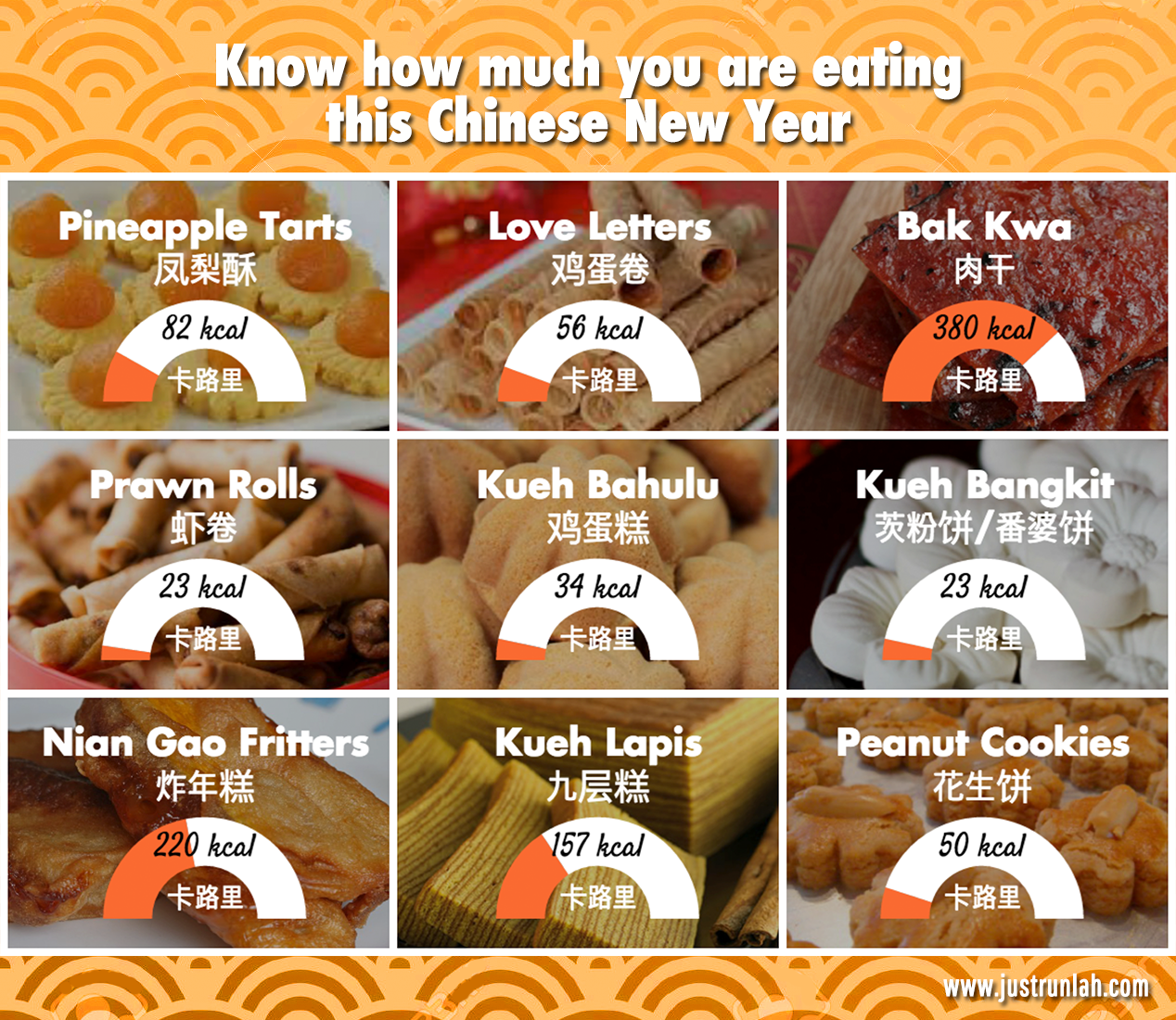
Regent Singapore CNY highlights
Chinese New Year, the period of sinful, calorie-dense treats you simply can’t avoid when you go to any house visiting. With containers of bak kwa (pork jerky), pineapple tarts, love letters, shrimp rolls, kueh bangkit stacked high in each home, together with all the mouth watering festive meals that will be consumed (such as yu sheng, steamboat and many more), it is nearly impossible to avoid over indulgence, which results in gaining a few extra pounds.
Knowing all that, it does not mean that you should not enjoy all of these festive goodies. After all, one of the best things about this festive season is without a doubt, the food along with the company. Everyone is entitled to indulge a little but the key to keeping that waistline is balance and moderation.
Since 8 is an auspicious number, here are 8 easy tips to stay healthy through this festive period.
Tip 1:
Stay hydrated.
Surprisingly, one of the main culprits of overeating is dehydration. One of the most perplexing trick your body plays on your mind is disguising dehydration as hunger. When you are dehydrated for long periods of time, it often leads to unhealthy eating habits and subsequently, causing you to put on weight over time.
You may wonder “Why does my body do that?”. It is due to having insufficient water in the liver resulting in the inability to produce glycogens, the substance that gives you that ‘full’ feeling. Having a low glycogen count would often trigger you to start looking for food that are high in sugar (usually processed or baked goods). When there is too much sugar in the blood, it causes an insulin* spike, which stops the body from burning fat until insulin levels are lowered. When insulin levels are too high, it also causes your body to store the excess body fat since it prefers glycogen* as its energy source so that the body will not burn the stored fat for energy.
*Glycogen: A substance deposited in bodily tissues as a store of carbohydrates. It is a polysaccharide which forms glucose on hydrolysis.
*Insulin: A hormone made by the pancreas that allows your body to use sugar (glucose) from carbohydrates for energy or for storage till the body requires it. Insulin helps keep the blood sugar levels from getting too high or too low.
Other than hunger, some other signs of dehydration includes:
1.1 Fatigue
When your body is deprived of water, it becomes less effective in supporting the hundreds of biological processes occurring in the body. The organs would have to work much harder to do their jobs, resulting in fatigue. This will lead your brain to crave for a quick ‘pick me up’ through snacking, and the cycle repeats once your energy depletes. And it all starts from not drinking enough water.
1.2 Craving for salt
Another bizarre trick that your body does when it is dehydrated is reading thirst as the need for salt. A dehydrated body has the tendency of craving sodium - a nutrient that causes dehydration. What an irony!
However, the occurrence of that phenomenon is due to losing salt and water through sweating, resulting in the body feeling the need to replenish the sodium that is has lost. Our body requires salt for our nerve and muscle function and the regulation of fluids in the body, but we just have to be sure to pay attention to the salt intake in our diets, as over consuming sodium causes not only dehydration, but may also lead to high blood pressure or hypertension, which may lead to heart disease, kidney disease and stroke.
That being said, the solution is simply just to drink more water. Be sure to drink at least 2L of water a day to keep the body running optimally.
Tip 2:
Watch your portions.
Being surrounded with all the Chinese New Year goodies makes it extremely difficult to resist going for seconds. Instead of going on a complete snack ban, allow yourself to 1 to 2 pieces per snack and be sure to stick with the limit.
As for the bigger celebratory meals such as steamboats or an open house buffet, the trick around this is using a smaller plate! Filling a smaller plate tricks your brain to feel satisfied with much less. This is called the Delboeuf Illusion.
Tip 3:
Avoid going visiting with an empty stomach.
It is always good to have a handful of healthy snack before visiting. Having snacks that are packed with fibre, protein and healthy fats, keeps you feeling full for longer periods of time as our body digest them slower than simple carbohydrates.
2 common healthy snacks that are readily available this season:
3.1 Mixed nuts
During visiting it is often that we find containers of pistachios, cashew nuts and peanuts laying around. Nuts are rich in fibre, magnesium and have a low glycemic index (GI). They promote satiety* and increase the action of insulin, thereby improving the blood sugar control, appetite regulation and metabolism.
It is recommended to eat 28g (1oz) serving of plain baked or roasted nuts a day to get various vitamins, minerals and phytochemicals* and gain health-promoting nutrients.
*Satiety: The feeling of appetite satisfaction
*Phytochemicals: Substances found in fruit and vegetables that are known to protect against cancer, heart disease and other chronic diseases.
3.2 Fruits
Since there are an abundance of Mandarin oranges (a traditional symbol of abundance and good fortune) in each household this season, it is a good snack for curb your sweet tooth, while providing you with vitamin C which supports your immune system, fibre to keep you full for longer periods of time and many other health benefits such as lowering of cholesterol levels and having antioxidant functions.
Tip 4:
Stay Active.
In the midst of all the feasting and sitting around while catching up with your friends and family, it is important to stay active during your free time to burn off those calories!
Make time for a workout schedule and commit to it. Either 30-minute walk or a 10 minute high intensity interval training (HIIT) a day. Do both if you have the time! You can do this the first thing in the morning so that you can refrain from having any excuses or distractions to stop you from getting your workout in. Having a workout in the morning also helps kick start your metabolism and burn calories for the day.
Here’s a 10 minute HIIT workout you can do at anywhere to get your heart rate up and burn those calories. No equipments needed.
Do each exercise at high intensity for 45 seconds, followed by 15 seconds of rest.
-
Mountain Climbers
-
Push-Ups
-
Squats
-
Crunches/Flutter Kicks
-
Burpees
-
Plank
-
Jump Squat
-
Tricep Dips
-
High Knee
-
Lunges
While you’re at it, you can download the Health 365 mobile app and participate in the National Steps Challenge™, a physical activity initiative by the Health Promotion Board (HPB). Just by being active, you will be able to earn Healthpoints, in which will allow you to redeem various rewards on their app. For more information, head down to https://www.healthhub.sg/programmes/37/ns
Tip 5:
Get enough sleep
During Chinese New Year, it is a yearly ritual to play Mahjong, Blackjack, and many other card games till the wee hours of the morning. The only problem with that is having insufficient amount of rest which often leads to more snacking and cancelled workout plans. When you are tired, the tendency to snack for the spike in blood sugar to give you a short burst of energy is very compelling. And before you know it, you have already gone through a whole container of Chinese New Year goodie unknowingly.
But fret not. The occasional all nighter would not totally disrupt your well being. Just be sure to have a balance of rest and play to prevent yourself from getting ill and dampening your metabolism. Take any chance of having a nap while you can to get some rest in.
Tip 6:
Eat and drink mindfully
It is no surprise to anyone now that majority of the traditional Chinese New Year goodies are loaded with sugar and fats.
Here are the calories count for some of the most popular Chinese New Year goodies:

This article was originally published in JustRunLah (https://www.justrunlah.com/2016/01/26/know-how-much-you-are-eating-this-chinese-new-year/). Read more at www.justrunlah.com.
As shocking as the numbers are, it does not mean that you have to abstain completely from it. So long as you are aware of the amount that you are eating as mentioned in tip 2 to minimise overeating.
It is also important to drink mindfully as well. Did you know that a 250ml sweetened packet drink contains as much as 5.5 teaspoons of sugar? That is half of HPB recommended daily limit of sugar intake. Try opting for drinks that have reduced sugar or unsweetened drinks. However, nothing beats good old plain water, it does the job and best of all, it has ZERO calories.
Tip 7:
Balancing your food intake
While it is enjoyable to indulge in some sinful goodies, do attempt to eat cleaner where you can. For example, during a steamboat, go for the lean proteins first, vegetables next and then indulge a little in whatever else that is on the table. Protein and vegetables have satiating properties that will lower your chances of overeating.
Tip 8:
Eat till you’re three-quarters full at most
When you overeat, it causes the stomach to expand beyond its normal size to contain the large amount of food. The expanded stomach pushes against other organs, resulting in discomfort in the form of feeling tired, sluggish or drowsy.
Eating too much food requires your organs to work harder. They secrete extra hormones and enzymes to break the food down. To break down food, the stomach produces hydrochloric acid. This acid may back up into the oesophagus resulting in heartburn. If you consume food that are high in fat, which most of the Chinese New Year goodies are, may cause you to be more susceptible to heartburn and sore throat.
Sources & references:
https://www.mountelizabeth.com.sg/healthplus/article/7-tips-to-stay-slim-and-healthy-chinese-new-year
https://www.channelnewsasia.com/news/brandstudio/healthyeating/10-ways-to-watch-that-waistline-this-chinese-new-year-11175482
https://www.asiaone.com/health/tips-stay-healthy-during-chinese-new-year
https://manoa.hawaii.edu/exploringourfluidearth/chemical/chemistry-and-seawater/salty-sea/weird-science-salt-essential-life
https://liquid-iv.com/blogs/news/dehydration-hunger-how-thirst-can-lead-to-overeating
http://www.musclebuildingfoodshq.com/the-facts-about-insulin/
https://www.verywellfit.com/what-is-glycogen-2242008
https://www.health.com/fitness/a-10-minute-hiit-workout-you-can-do-anywhere
https://www.mdanderson.org/publications/focused-on-health/What-happens-when-you-overeat.h23Z1592202.html
Eat Better, Live Longer: Understand What Your Body Needs to Stay Healthy / Dr Sarah Brewer, Juliette Kellow
The Magic of Food: Live Longer and Healthier — and Lose Weight with the Synergetic Diet / Michael T. Murray, ND
The 150 Healthiest foods on Earth: The Surprising, Unbiased Truth about What You Should Eat and Why / Jonny Bowden, Ph.D, C.N.S.


